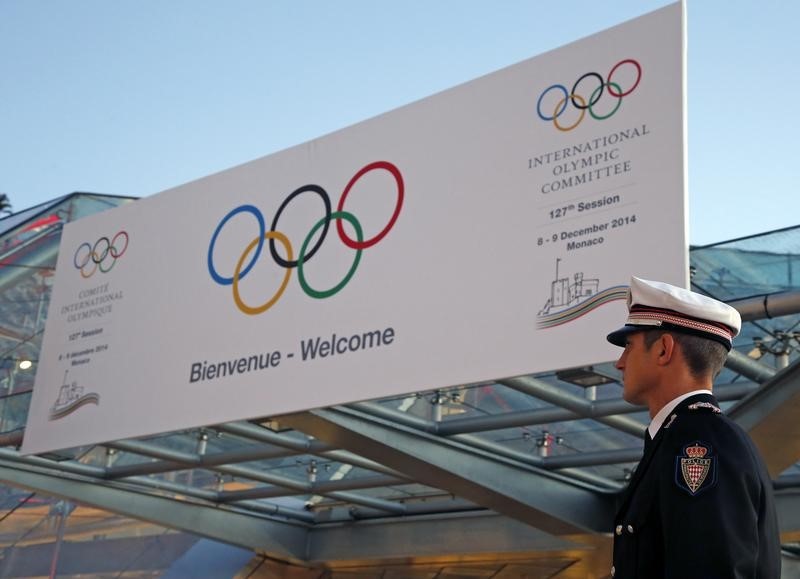By Karolos Grohmann
BERLIN (Reuters) - The International Olympic Committee published its indemnity policy for the first time on Thursday following a proposal from its ethics commission to increase transparency within the organisation.
In an unprecedented move for an international sports organisation, the IOC said it had approved the IOC Ethics Commission's proposal and demand to make it public as part of its Agenda 2020 reforms process.
The announcement will no doubt pile pressure on other sports organisations, including world football's governing body FIFA, which has staunchly refused to publish the salaries and bonuses of top staff including under-fire President Sepp Blatter, also an IOC member.
The IOC Ethics Commission, which had urged the IOC to immediately publish its approved compensation policy also called on other Olympic sports organisations to follow suit.
Under the policy, the IOC president, who does not get a salary, will be compensated with a flat annual amount of 225,000 euros ($243,540) to cover his expenses.
"According to the obligations and rights attributed to him in the Olympic Charter, the IOC President has the function of an Executive President. Therefore, the President is on a mission for the IOC 365 days a year," the Ethics Commission said.
"The President will receive neither the fixed annual support nor the daily indemnity related to all commission meetings or other missions that he is entitled to as IOC member," it said.
"Instead of this, to cover some of the President's personal costs related to the execution of his function, the ethics commission is fixing a single annual fixed amount linked to inflation of Euro 225,000 -- as indemnity."
IOC Executive Board members and commission heads will receive $900 (607 pounds) per day with simple IOC members $450 a day. An annual administrative support of $7,000 is added for each member, while travel and accommodation is covered by the IOC.
The IOC Ethics Commission chairman, in a separate letter to all IOC members, said the new indemnities policy would further increase transparency.
"Your wish for greater transparency has been reflected in the IOC's presentation of its finances using the highest international standards," Youssoupha Ndiaye said in the letter.
"It must also be reflected in all other aspects of the IOC's management, particularly with regard to the policy on the indemnities allocated to IOC members."
"The IOC Ethics commission invites all sports organisations of the Olympic movement to establish a similar policy and make this public, in order to increase transparency within the sports movement."

The IOC's Agenda 2020 reforms, approved back in December, aim to make the Olympics more attractive, reduce cost of the Games, change the sports programme more quickly to keep the event relevant to younger audiences while also making the IOC more transparent.